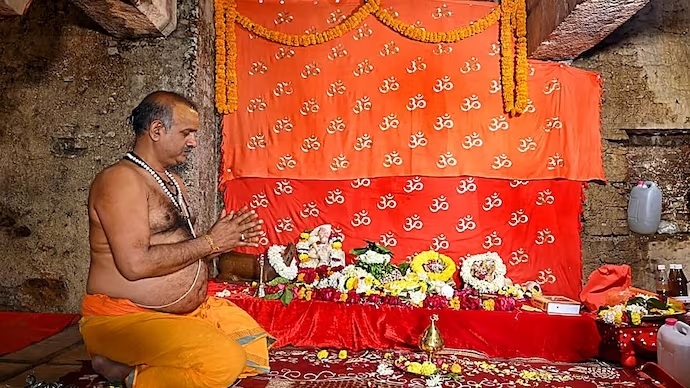HC rejects pleachallenging Varanasi court orderallowing ‘puja’ at Gyanvapi
| Date :27-Feb-2024 |

PRAYAGRAJ :
HINDU prayers will continue
in the southern cellar of the Gyanvapi
mosque in Varanasi,
the Allahabad High
Court said on
Monday while dismissing a
plea that had challenged the
district court’s order to this
effect.
Justice Rohit Ranjan Agarwal
rejected two appeals filed bythe mosque managementcommittee challenging theVaranasi
district judge’sJanuary 17 orderthat appointed thedistrict magistrate as the receiver of the “Vyas Tehkhana” orsouthern cellar of the mosque and January 31 order by
which he allowed ‘puja’ to be
performed there.
The High
Court said worship will continue in the “Vyas Tehkhana”
of the mosque adjacent to
the KashiVishwanath temple.
Mohammad Yasin, joint
secretary of Anjuman
Intezamia Masajid, the committee that manages the
affairs of the Gyanvapi, said
that their lawyers are studying the judgement and they
might approach the Supreme
Court against the order.
Dismissing the appeals,
Justice Agarwal said, “After
going through the entire
records of the case and considering the arguments of the
parties concerned, the court
did not find any ground to
interfere in the judgement
passed by the district judge
on January 17, appointing the
Varanasi district magistrate as
the receiver of the property,
as well as the order dated
January 31 by which the district court permitted puja in
the tehkhana.”
Going through
the argument made by the
Muslim side that the January
31 order was passed without
any application, the High
Court said, “In the instant
case, by order dated January
17 the composite prayer
made in application was
allowed, but only relief (a)
was incorporated appointing receiver. Relief (b) allowing worship was added on
January 31, 2024 after it was
brought to the notice of the
Court and order stood modified/ amended in terms of
Sections 151/152 CPC.”
“I find that the challenge
made to the order dated
January 31 on the plea of res
judicata is totally unfounded as the relief prayed by the
plaintiff was granted on
January 17, 2024 but part of
it was not incorporated in the
order which was subsequently modified/ amended,” Justice Agarwal said.